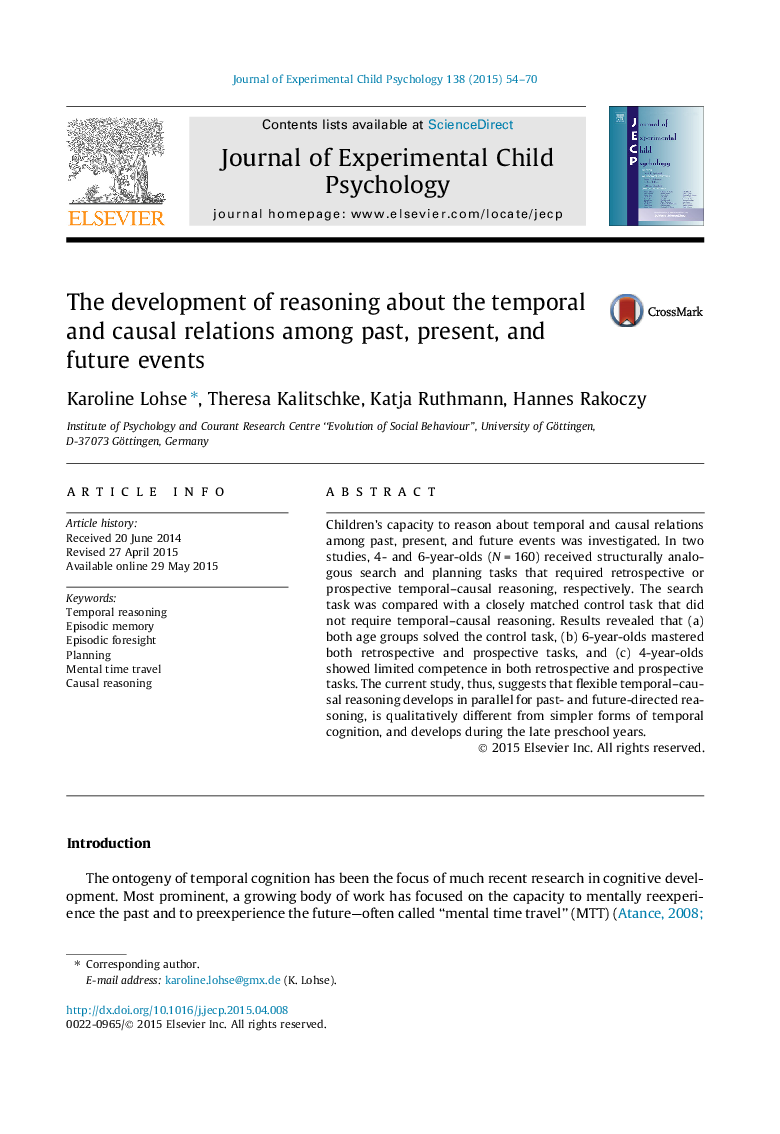| Article ID | Journal | Published Year | Pages | File Type |
|---|---|---|---|---|
| 917938 | Journal of Experimental Child Psychology | 2015 | 17 Pages |
•Investigation of 4- and 6-year-olds temporal–causal reasoning skills.•Results suggest that children’s past and future reasoning skills develop in synchrony.•Closely follows and expands findings from earlier research on children's temporal reasoning.•Highlights and discusses the specific nature of limitations in 4-year-olds competence.
Children’s capacity to reason about temporal and causal relations among past, present, and future events was investigated. In two studies, 4- and 6-year-olds (N = 160) received structurally analogous search and planning tasks that required retrospective or prospective temporal–causal reasoning, respectively. The search task was compared with a closely matched control task that did not require temporal–causal reasoning. Results revealed that (a) both age groups solved the control task, (b) 6-year-olds mastered both retrospective and prospective tasks, and (c) 4-year-olds showed limited competence in both retrospective and prospective tasks. The current study, thus, suggests that flexible temporal–causal reasoning develops in parallel for past- and future-directed reasoning, is qualitatively different from simpler forms of temporal cognition, and develops during the late preschool years.
